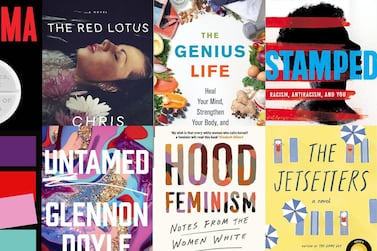With a growing number of music and arts organisations embracing virtual space to combat the Covid-19 pandemic, will international book fairs soon follow?
Well, maybe not so fast. According to Juergen Boos, the director of the Frankfurt Book Fair, these events should always be a public affair.
While there is no word yet on whether the annual literary gathering, which is the world's oldest and largest book fair and set to take place from Wednesday to Sunday, October 14 to 18, will go ahead, Boos said the impact of the event cannot be replicated online.
Speaking in the The Frankfurt Book Mark digital letter, he said he was not convinced that going ahead with a virtual book fair format would achieve the same impact that a physically staged event presents.
“Book fairs celebrate the industry itself. They also play a significant role economically, providing a venue for various activities – from customer acquisition and business development to cooperative agreements, from product presentations and trendspotting to recruiting and further education,” he said.
“All these business and networking options thrive on face-to-face interactions. In my opinion, approaching them virtually is not something we can realistically do in the foreseeable future.”
With that said, Boos laments the cancellation of a string of key events due to unfolding pandemic, including the London Book Fair (March 10-12), Paris Book Fair (March 20-23) and the Bologna Children’s Book Fair (April 12-15).
As well as the the economic benefits such events bring to host cities, their cancellations is a cultural loss as it effects the livelihoods of authors and small and independent publishers.
“Fairs usually drive public discourse, addressing numerous questions: Which discussions are relevant? What do authors have to say about current events? Which trends and innovations will be important in coming months?” he said. “These intense debates lead readers to authors and their works.”
While the future remains uncertain for the remaining book fairs on the calendar – including the Sharjah International Book Fair, which is scheduled to run from Wednesday to Saturday, November 4 to 14 – Boos said festival directors are in constant communication as they monitor the situation.
“A network of book fair directors has existed for 30 years and at the moment we are in contact with everyone, from Buenos Aires to Taipei,” he said. “Everybody is affected by the current situation and the focus is on ensuring an effective exchange of information."








